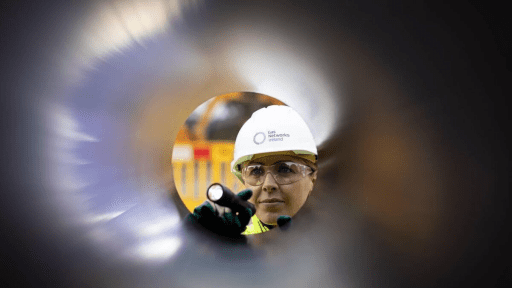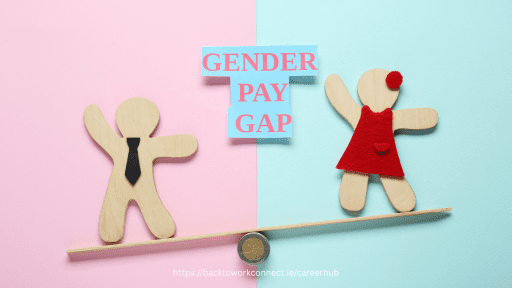As Artificial Intelligence (AI) continues to transform the world of work, one area seeing a quiet but powerful revolution is CV writing. Career consultant Laura Griffin recently shared her insights on the growing role of AI in the job search process, and what it means for jobseekers, hiring managers, and everyone in between.
Here are the key takeaways—and what you can do to stay ahead.
Understanding the AI-CV Connection
At its core, AI is the ability of a computer system to mimic human intelligence—learning from data, reasoning, solving problems, and even understanding language. In the job market, this means AI can analyse CVs at scale, match keywords with job descriptions, and even help tailor applications to specific roles.
Sounds promising, right? It is—but there’s nuance.
While AI can spot patterns and keywords that make a candidate stand out, it’s not perfect. As Laura points out, common sense isn’t AI’s strong suit. It might generate a great CV summary but miss the mark with awkward phrasing or overuse of jargon. Think of that infamous AI-generated image where a teacup floated mid-air. Great data, poor instincts.
Two Perspectives: Hiring Managers vs Candidates
One of the most valuable points Laura made was this: to use AI effectively, you need to understand both sides of the equation.
From the candidate’s side, AI tools can:
👉Help identify top skills from job descriptions
👉Optimise your CV with the right keywords
👉Generate profile summaries based on your achievements
From the hiring manager’s side, AI systems can:
✔️Rapidly scan hundreds of CVs
✔️Flag relevant experience and skills
✔️Potentially reduce unconscious bias (although that depends on the data it’s trained on)
But beware: if AI tools are trained on biased data, they can repeat or even amplify those biases. One U.S. firm found that its AI-recruitment tool was unfairly filtering out candidates—based on flawed assumptions it had learned.
AI Can Be a Game-Changer for Candidates—If Used Well
Many jobseekers—especially Returners or career changers—find it hard to translate their experience into ‘CV speak’. This is where AI can shine. Tools like ChatGPT can help draft concise, tailored summaries that highlight your impact and achievements in plain English. Not overly polished. Not robotic.
Here’s the trick: Don’t just copy and paste.
Experiment with prompts. Provide context. Ask the AI to simplify, clarify, or rephrase in your tone. And always review and revise. A CV written with AI still needs your voice and your experience.
Practical Tips for AI-Enhanced Job Search
1.Start with the Job Description: Use AI to scan a role and extract the top 5 skills. Match these on your CV if you have them.
2.Tailor Smartly: Use a strong CV template, then refine it with AI for each job. Think of AI as your personal editor.
3.Keep It Human: Avoid big, vague words that might sound smart but say little. Make it clear what you did and how you did it.
4.LinkedIn Still Matters: With 70% of jobs gone before they’re even posted, your profile is your CV’s public counterpart. Use the same keyword strategy there.
5.Use Free Tools First: Many AI CV scanners are free and help with ATS (Applicant Tracking System) compatibility. You don’t always need to pay for a flashy tool.
Agencies, Gaps & Getting Back in the Game
For those with career gaps or pivoting into new industries, AI is a helpful bridge—but human support still matters. Laura also reminded us that you don’t need the “perfect” CV—you need one that gets you into the conversation.
Upskilling, reframing your experience, and getting used to new tools (like AI platforms) are part of the journey back. Whether you’re reentering after a break or switching careers, the faster you learn to work with AI, the more confidence you’ll build.
Final Thoughts: Blend the Machine with the Human
AI is here to stay in recruitment—and used wisely, it’s a powerful assistant. But like all tools, it needs a human touch. The best CVs today combine what AI does well (keyword optimisation, formatting, analysis) with what only you can offer: insight, authenticity, and experience.
So take Laura Griffin’s advice: get familiar with AI. Try it, test it, and keep refining your approach. The more you understand the tool, the more successful—and less overwhelmed—you’ll feel in your job search.
And remember: the future of work isn’t about replacing humans with AI. It’s about amplifying human potential—with the right tools by your side.
Ready to give AI a go with your CV?
Start small. Paste your current CV into ChatGPT or a similar tool and ask:
“Rewrite this summary for a project management job using simple, clear language.”
Then refine from there.
The future of CV writing is not just high-tech—it’s smart-tech. Let it work for you.
Keep up to date with the latest Returner Friendly employers, upskilling & retraining opportunities by joining our platform HERE
Sign up to our newsletter & job alert today and never miss the ideal opportunity again ! Sign up HERE





